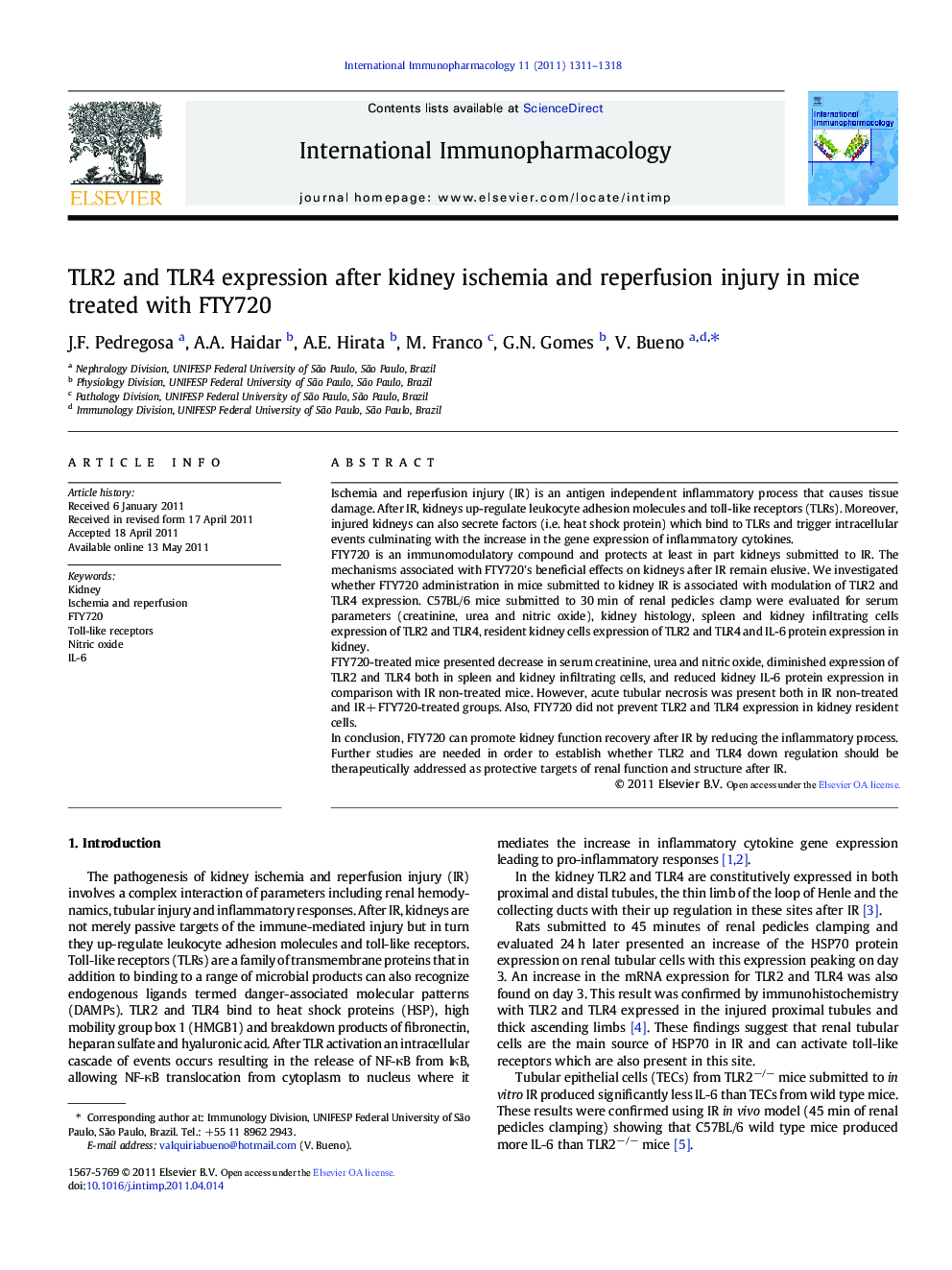| Article ID | Journal | Published Year | Pages | File Type |
|---|---|---|---|---|
| 5833885 | International Immunopharmacology | 2011 | 8 Pages |
Ischemia and reperfusion injury (IR) is an antigen independent inflammatory process that causes tissue damage. After IR, kidneys up-regulate leukocyte adhesion molecules and toll-like receptors (TLRs). Moreover, injured kidneys can also secrete factors (i.e. heat shock protein) which bind to TLRs and trigger intracellular events culminating with the increase in the gene expression of inflammatory cytokines.FTY720 is an immunomodulatory compound and protects at least in part kidneys submitted to IR. The mechanisms associated with FTY720's beneficial effects on kidneys after IR remain elusive. We investigated whether FTY720 administration in mice submitted to kidney IR is associated with modulation of TLR2 and TLR4 expression. C57BL/6 mice submitted to 30Â min of renal pedicles clamp were evaluated for serum parameters (creatinine, urea and nitric oxide), kidney histology, spleen and kidney infiltrating cells expression of TLR2 and TLR4, resident kidney cells expression of TLR2 and TLR4 and IL-6 protein expression in kidney.FTY720-treated mice presented decrease in serum creatinine, urea and nitric oxide, diminished expression of TLR2 and TLR4 both in spleen and kidney infiltrating cells, and reduced kidney IL-6 protein expression in comparison with IR non-treated mice. However, acute tubular necrosis was present both in IR non-treated and IRÂ +Â FTY720-treated groups. Also, FTY720 did not prevent TLR2 and TLR4 expression in kidney resident cells.In conclusion, FTY720 can promote kidney function recovery after IR by reducing the inflammatory process. Further studies are needed in order to establish whether TLR2 and TLR4 down regulation should be therapeutically addressed as protective targets of renal function and structure after IR.
⺠After kidney IR injury TLR2 and TLR4 are highly expressed in circulating leukocytes, kidney infiltrating leukocytes and kidney resident cells. ⺠Mice submitted to kidney IR injury and treated with FTY presented an early recovery of organ function but acute tubular necrosis was not prevented. ⺠FTY720 decreases significantly TLR2 and TLR4 expression in leukocytes but not in kidney resident cells. ⺠FTY720 decreased the expression of IL-6 in the renal tissue. The drug was protective in kidney IR injury probably by its anti-inflammatory action. ⺠The use of TLR2 and TLR4 as therapeutic targets to protect the kidney after IR requires further evaluation.
